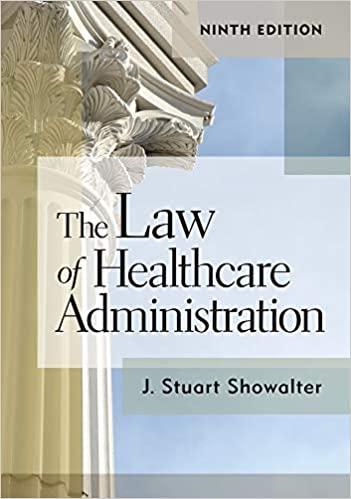Question
Answer the following questions appropriately please??? REVISED CORPORATION LAW 1.) Corporation which is public in character but private in purpose: A.) Corporation B.) De facto
Answer the following questions appropriately please???
REVISED CORPORATION LAW
1.) Corporation which is public in character but private in purpose:
A.) Corporation
B.) De facto corporation
C.) Non-stock corporation
D.) GOCC
E.) Close corporation
2.) Shares which have been lawfully issued by the corporation and fully paid for and later reacquired it either by purchase, redemption, donation, forfeiture or other lawful means:
A.) Treasury shares
B.) Redeemable shares
C.) Delinquent shares
D.) Stock options
3.) The following are causes for suspension or revocation of certificate of registration of a corporation, EXCEPT:
A.) fraud in procuring certificate of registration
B.) continuous inoperation for 2 years
C.) serious misrepresentation to the damage of the general public
D.) defiance of any lawful order of the SEC
4.) Which among the following is not a valid issue value of a no par value share?
A.) Php 0.50
B.) Php 5.00
C.) Php 50.00
D.) Php 500.00
5.) A corporation has a juridical personality separate and distinct from that of its stockholders or members:
A.) Doctrine of Corporate Entity
B.) Doctrine of Equality of Shares
C.) Doctrine of Piercing the Veil of Corporate Fiction
D.)Trust Fund Doctrine
E.) Dummy Doctrine
6.) This doctrine allows the State to disregard the separate juridical personality of the corporation where the entity is formed or used for non-legitimate purposes.
A.) Doctrine of Corporate Entity
B.) Doctrine of Equality of Shares
C.) Doctrine of Piercing the Veil of Corporate Fiction
D.) Trust Fund Doctrine
E.) Dummy Doctrine
7.) The capital of the corporation must not be dissipated for the purpose of payment of corporate obligations and liabilities.
A.) Doctrine of Corporate Entity
B.) Doctrine of Equality of Shares
C.) Doctrine of Piercing the Veil of Corporate Fiction
D.) Trust Fund Doctrine
E.) Dummy Doctrine
8.) Where the Articles of Incorporation do not provide for any distinction of the shares of stock, all shares issued by the corporation are presumed to be equal and enjoy the same rights and privileges and are also subject to the same liabilities.
A.) Doctrine of Corporate Entity
B.) Doctrine of Equality of Shares
C.) Doctrine of Piercing the Veil of Corporate Fiction
D.) Trust Fund Doctrine
E.) Dummy Doctrine
9.) Where the corporation is controlled by aliens, this is in violation of the law as where it was organized under Philippine laws
A.) Doctrine of Corporate Entity
B.) Doctrine of Equality of Shares
C.) Doctrine of Piercing the Veil of Corporate Fiction
D.) Trust Fund Doctrine
E.) Dummy Doctrine
10.) The following are qualifications of incorporators except:
A.) Natural or artificial persons
B.) Must own at least one share of stock, if stock corporation
C.) Must be of legal age, if natural person
D.) Majority must be citizens of the Philippines
E.) None of the above
11.) Persons who, acting alone or with others, take initiative in founding and organizing the business or enterprise of the issuer and receive consideration therefor
A.) Incorporators
B.) Stock/Shareholders
C.) Corporators
D.) Promoters
E.) Members
12.) Those mentioned in the article of Incorporation as originally forming and composing the corporation
A.) Incorporators
B.) Stock/Shareholders
C.) Corporators
D.) Promoters
E.) Members
13.) Comprise the corporation whether as stockholders or members:
A.) Incorporators
B.) Stock/Shareholders
C.) Corporators
D.) Promoters
E.) Members
14.) Owners of shares in a corporation which has a capital stock:
A.) Incorporators
B.) Stock/Shareholders
C.) Corporators
D.) Promoters
E.) Members
15.Corporators of a corporation which has no capital stock:
A.) Incorporators
B.) Stock/Shareholders
C.) Corporators
D.) Promoters
E.) Members



Step by Step Solution
There are 3 Steps involved in it
Step: 1

Get Instant Access to Expert-Tailored Solutions
See step-by-step solutions with expert insights and AI powered tools for academic success
Step: 2

Step: 3

Ace Your Homework with AI
Get the answers you need in no time with our AI-driven, step-by-step assistance
Get Started


